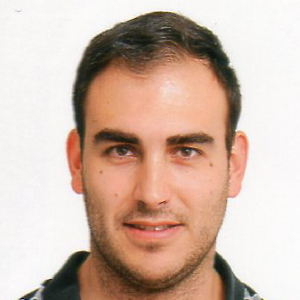Pracownicy

dr hab.
Alejandro Ibanez Ricoma
Profile naukowe, dydaktyczne i społecznościowe
Czym się zajmuję - opis stanowiska
adiunkt
Do moich obowiązków należy:
- prowadzenie i uczestnictwo w badaniach naukowych i pracach rozwojowych, polegające na realizacji grantu, kierowaniu programem badawczym lub uczestnictwie w międzynarodowym programie badawczym;
- rozpowszechnianie wyników badań naukowych poprzez ich publikowanie w prestiżowych międzynarodowych czasopismach;
- pozyskiwanie środków na badania naukowe poprzez aplikowanie w konkursach;
- aktywne uczestnictwo w konferencjach i seminariach naukowych;
- udział w komercjalizacji wyników badań.
Interesuje mnie sposób, w jaki zwierzęta komunikują się ze sobą za pomocą sygnałów chemicznych i feromonów. Przykładowe zagadnienia mich badań to m. in.: ewolucja komunikacji chemicznej u żółwi z perspektywy filogenetycznej, a także zmienność siedliskowa i populacyjna feromonów u jaszczurek. Do scharakteryzowania składu chemicznego wydzielin gruczołowych u gadów wykorzystuję techniki laboratoryjne.
I am interested to understand how animals communicate through chemical signals or pheromones. I use laboratory techniques to characterize the chemical composition of glandular secretions in reptiles. One of my main lines of research focuses on the evolution of chemical communication in turtles from a phylogenetic perspective. I also use lizards to understand pheromone variation across populations and habitats.
Biogram
I completed my bachelor studies in Biology at the Autonomous University of Barcelona (2004-2009) in Spain. During the period 2009-2014, I moved to the National Museum of Natural Sciences (MNCN) in Madrid to obtain a MSc degree, followed by a PhD focusing on the function of sexual signalling and antipredator behaviour in the Spanish terrapin (Mauremys leprosa). From 2015 to 2017 I was an Alexander von Humboldt foundation postdoctoral fellow at the Technical University of Braunschweig, Germany. During my postdoc I studied the role of chemical signals in Galápagos marine iguanas (Amblyrhynchus cristatus). In the years 2018-2021 I worked at the institute of Zoology and Biomedical research of the Jagiellonian University in Krakow. Since April 2021 I work as an Assistant Professor at the Department of Ecology and Vertebrate Zoology, University of Lodz.
Zainteresowania
My main interest is to understand how animals communicate with a especial focus on chemical signals and pheromones. One of the main lines of research I am interested in focuses on the evolution of chemical communication in turtles (order Testudines) from a phylogenetic perspective. I also use lizards (order Squamata) as models to understand chemosignal variation across populations and habitats. Currently, I am leading a project using the sand lizard (Lacerta agilis) as a model to understand how symbiotic bacteria may mediate mate choice through chemical signals. Furthermore, I am also interested in other topics that include molecular detection of haemoparasites and, more broadly, the behavior, ecology and evolution of reptiles.
Osiągnięcia
My PhD thesis was awarded an Outstanding Thesis Award by the Complutense University of Madrid (Premio Extraordinario de Doctorado). Later on, I was awarded with a prestigious postdoctoral fellowship from the Alexander von Humboldt Foundation to conduct research in Germany. In Poland, I have so far obtained two grants from the National Science Centre (NCN) as a principal investigator - including OPUS and SONATA funding schemes. During my career I have worked or established scientific cooperation with several research groups in my home country (Spain), as well as abroad. Some of the key institutions I have worked or collaborated with during my scientific career include Technical University of Braunschweig (Germany), Museum of Zoology, Dresden (Germany), National Natural Science Museum, Madrid (Spain), University of Extremadura, Badajoz (Spain), Catalonian Reptile Amphibian Rescue Center- CRARC, Masquefa (Spain), University of Pavia (Italy), Turtle Island, Graz (Austria) and Jagiellonian University in Krakow (Poland). As a result of my research I have so far published a total of 28 articles in scientific journals.
Dyżury
adiunkt
Banacha 12/16 () pokój: 410 90-237 Łódź
Kontakt
adiunkt
Banacha 12/16 () 90-237 Łódź pokój: 410
ul. Narutowicza 68, 90-136 Łódź
NIP: 724 000 32 43
KONTAKT
